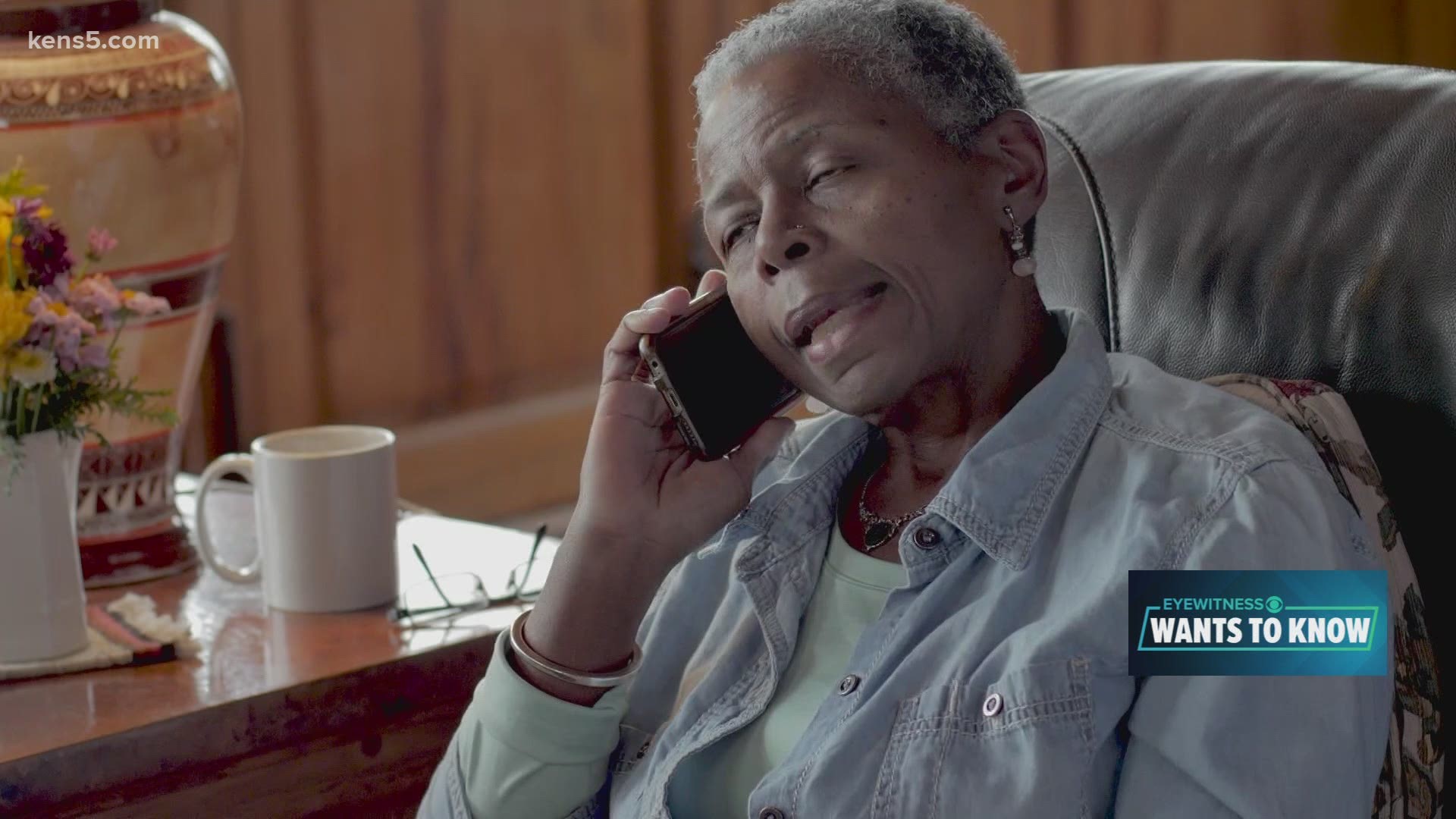SAN ANTONIO, Texas — Often, we are relieved when our bank calls us up to let us know it detected fraud on an account. We are glad it was caught quickly, but sometimes it is not actually a financial institution on the other end of the phone helping you keep your money.
“Fraudsters are calling posing as a bank and consumers are trusting because typically a bank will call you and report suspicious activity,” said Stacey Nash, who oversees bank fraud at USAA.
Almost half of Americans have been targeted by this type of scheme. Nash said it's the No. 1 scheme she saw in 2020. Yet, you can easily identify if it is legitimately a bank communicating with you by the questions you get asked.
“Banks will never ask you for personal information such as passwords, PIN code, anything that you use just purely to access your account,” Nash said.
“Would a bank ask you whether you boxers or brief? Would they ask you whether you believe in aliens? No,” said Paul Benda, with the American Bankers Association. “Would they reach out of the blue and say, ‘Hey, can you please confirm your account number and password?’ No.”
He said a good clue to determining if such calls are schemes is this:
“They might pressure you in terms of, 'Act now or you’re going to lose money,'" said Benda. "Anytime anyone pressures you, that’s a big red flag. Slow down, take a breath and say, 'You know what? I’m going to call you back,' and you use the number on the back of your bank card.”
Ask a lot of questions. Your bank should be able answer them.
“It’s completely within your right to say, 'Well, wait a second, let me ask you a few questions first,'” Nash said. “I received a call a couple of months ago where somebody called me and said, 'I’m calling from...' and they named the association: MasterCard, Visa, Amex. When I pushed on – 'Which cards specifically are you calling about?' – they couldn’t answer the question. They were hoping that I would just think, 'Oh, wait, I do have one of those cards and I would just start giving information out.'"
Instead, your bank should have specific information about a transaction.
“They would know, hey, you made this purchase on this date,” said Benda. “You know, it’s your bank.”
Hang up if you suspect it is a fraudster. Instead, call the number on your bank card or on your bank’s website.
“Then we investigate,” Nash said. “We can actually look at your portfolio. We can make sure everything’s OK. We can do our best to put you at ease. I’d much rather take a that call before something bad happens versus after.”
It is much easier to keep money in your account then try to recover it after a schemer empties it out.
If you have a question for Eyewitness Wants To Know, email us at EWTK@kens5.com or call us as 210-377-8647.

